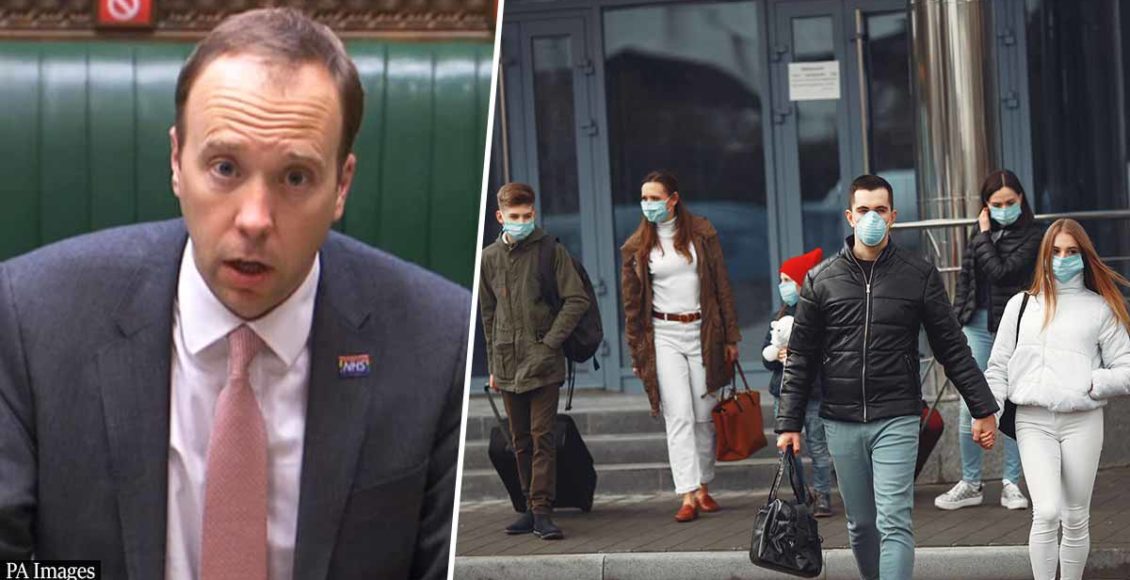People traveling to the UK face up to 10 years in prison and £10,000 fine if they break new rules

Travelers to the UK can face a fine of up to £10,000 and 10 years in prison if they do not quarantine and get tested for COVID.
- People arriving in the UK must quarantine in a government-sanctioned hotel when returning from a “red-list” country.
- The hotel stay, according to Health Secretary Matt Hancock, will cost £1,750.
- Those who fail to quarantine in a hotel will face large fines while those who lie on locator forms could face up to 10 years in prison.
People arriving in the UK risk hefty fines and imprisonment if they do not comply with the new COVID rules.
Those traveling from “red-list” countries must quarantine in government-sanctioned hotels for which they will be charged £1,750. In an announcement on Tuesday, Health Secretary Matt Hancock explained that a total of 16 hotels have been contracted for the program which is due to start on February 15. In addition to this, travelers must also take two COVID tests during their quarantine.
Health Secretary Matt Hancock clarified:
Passenger carriers will have a duty in law to make sure that passengers have signed up for these new arrangements before they travel, and will be fined if they don’t, and we will be putting in place tough fines for people who don’t comply. This includes a £1,000 penalty for any international arrival who fails to take a mandatory test, a £2,000 penalty for any international arrival who fails to take the second mandatory test, as well as automatically extending their quarantine period to 14 days, and a £5,000 fixed penalty notice – rising to £10,000 – for arrivals who fail to quarantine in a designated hotel.
Travelers must book their hotel stays in advance.
Passengers from the “red-list” countries must book their quarantine stays in advance. From February 11, the government-approved hotels will begin taking bookings. According to the Independent, the 33 red-listed countries are: Angola, Argentina, Bolivia, Botswana, Brazil, Burundi, Cape Verde, Chile, Colombia, Democratic Republic of Congo, Ecuador, Eswatini, French Guiana, Guyana, Lesotho, Malawi, Mauritius, Mozambique, Namibia, Panama, Paraguay, Peru, Portugal (including Maderia and the Azores), Rwanda, Seychelles, South Africa, Suriname, Tanzania, Uruguay, UAE, Venezuela, Zambia, Zimbabwe.
The government has not given any information as to when the national lockdown might end. Hancock explained that they would first need to make sure that the vaccines are effective against all variants of the virus. Commenting on this, he said: “If we get good news on the vaccination impact on hospitalizations and deaths from people who have … new mutations, then we will be in a better place.”

